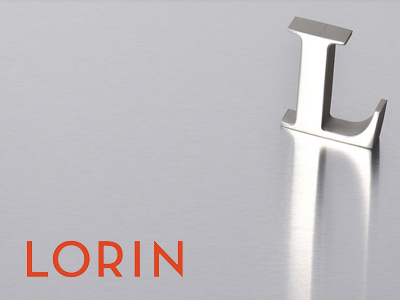Anodized Aluminum Surfaces May Help Minimize Surface Pathogen Collection
 By Ed Dahlquist, Lorin Industries, Inc.
By Ed Dahlquist, Lorin Industries, Inc.
During this health emergency [COVID-19 pandemic], material engineers have been actively discussing materials that may help to prevent the ability of bacteria
and germs to cling to surfaces.
Some interesting studies have come to light – which we think may be useful to those planning projects and investigating what type of material to use for surfaces.
One of the most interesting references appeared in the Cornell Chronical in 2015. The article discusses a new tech application that keeps bacteria from sticking to surfaces; a technology that uses anodization which can help minimize biofilm formation.
The technology was developed by researchers from Cornell University and Rensselaer Polytechnic Institute. The article detailing the groundbreaking research originally appeared in the journal Biofouling, The Journal of Bio adhesion and Biofilm Research,
Volume 30, 2014, Issue 101.
While the work is still preliminary, engineers and application experts at Lorin believe that anodized aluminum might well be a preferred surface when it comes to finding opportunities to minimize bacterial collection. Lorin worked with an independent lab to test the antimicrobial properties of Anodized Aluminum. Samples of three
of Lorin products were tested using JIS Z 2801:2010 Antimicrobial Products – Test for Activity and Efficacy2. A solution with bacteria was put on the surface of the anodized aluminum and incubated for 24 hours at 35°C. The concentration
of the bacteria was measured at the start and end of the incubation period. Testing with Escherichia coli showed a reduction in concentration of the bacteria from 74% to 99.7%. Testing with Staphylococcus aureus showed a reduction in concentration of the
bacteria from 74% to 87%.
In addition, the Journal of Hospital Infection conducted testing on a variety of surfaces to see how long bacteria and viruses can survive and aluminum showed to only provide 2-8 hours of life on its surface3.
1 [Citation: Guoping Feng, Yifan Cheng, Shu-Yi Wang, Lillian C. Hsu, Yazmin Feliz, Diana A. Borca-Tasciuc, Randy W. Worobo & Carmen I. Moraru (2014) Alumina surfaces with nanoscale topography reduce attachment and biofilm formation by Escherichia
coli and Listeria spp., Biofouling, 30:10, 1253-1268, DOI: 10.1080/08927014.2014.976561.]
2 [These test results are from [MicroStar Lab] which is a third party lab in coordination with Jim Nalewick Technical Director, Lorin Industries, Inc. 6/4/2015.]
3 [www.elsevier.com/locate/jhin, Journal of Hospital Infection.]
The first source full article can be purchased at: https://www.tandfonline.com/doi/full/10.1080/08927014.2014.976561?scroll=top&needAccess=true]
About Lorin Industries
 Lorin
Industries is a provider of coil anodized aluminum, used in various industries including architecture and construction.
Lorin
Industries is a provider of coil anodized aluminum, used in various industries including architecture and construction.